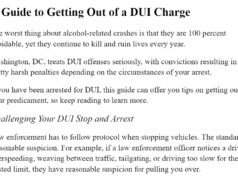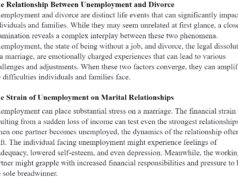SPONSORED CONTENT
One-third of Americans are arrested before the age of 23. Of those young adults, many face misdemeanor charges. While misdemeanors do not look as bad as felonies on paper, they can still be an obstacle to finding employment. Luckily, a misdemeanor charge does not have to mean a loss of job opportunities. Omaha’s new restorative justice diversion program gives second chances to people facing minor misdemeanors, allowing people with little, if any, criminal history to have their charges dismissed and records sealed.
What Are Diversion Programs?
Many states have acknowledged that first-time offenders, especially those with low-level charges, may not be best served by going through the regular criminal justice system. Rather than punishing these offenders, the courts may order counseling to help deter future offenses. Diversionary programs give offenders the opportunity to compensate victims through restitution and community service. Additionally, these programs have proven to be less expensive than sending a case through the typical criminal court process.
Though the government saves money, the defendants usually have to pay to enter these diversion programs, which can often cost more than a fine. Some programs require defendants to plead not-guilty, while others require that the defendant formally admit guilt. Any punishments the court orders will be suspended until after they complete the diversion program.
Diversion programs emphasize counseling, treatment, and behavior modification and can last from six months to over a year. Certain programs divert defendants to counseling early in the criminal proceedings, while others begin later. Offenders may attend therapy, do community service work, make restitution to the victim, and pay fines, depending on the specific program. Once an offender successfully completes a diversion program, their case will return to court and be dismissed. If an offender fails to complete the program their case will return to court and proceed accordingly.
Qualifying for Diversion
When creating diversionary programs, legislators identify the types of offenses that eligible parties may be charged with. “Usually, these offenses are minor and non-violent,” says Attorney John S. Berry Jr. from Berry Law Firm. “Some examples include petty theft, driving under the influence, and drug possession. Depending on the state, qualifying offenses may also include minor assaults or child neglect.”
The majority of diversion programs require that participants have no prior convictions for the charge they are facing. In the case of drug diversion programs, it is commonly required that the offender has no probation revocations for prior offenses, has been clean for a period of time before the case, and has no diversions within a defined amount of time.
Omaha’s New Restorative Justice Program
In January 2021, the City of Omaha unveiled a new restorative justice diversion program—a pilot program designed to give second chances to offenders with minor crimes. This particular program excludes defendants with DUI and assault charges, but those facing minor misdemeanor charges in drug or traffic court will be recommended for diversion. Leaders aim to build a strong relationship between police and the community using restorative justice.
Led by the Omaha Human Rights and Relations Department, the program will require participants to take a four-hour restorative justice class, complete 12 hours of community service, and keep a clean record for six months after completing the program. If all requirements are followed, participants will have their charges dismissed and records sealed. Officers involved in the participant’s arrest can also opt to participate in the program, giving officers and offenders a chance to engage with one another under less tense circumstances.
Omaha Police Chief Todd Schmaderer has explained that many officers are already interested in the program, noting that he believes the program could help the community heal after unrest. Schmaderer hopes that with proper screening of cases, this program will see a micro and macro improvement of police and community relations.
The new restorative justice program will start as a six-month pilot program then be re-evaluated to determine if it will become a permanent diversion option. If you are facing criminal charges, it may be beneficial to consult with a lawyer in your area about your eligibility for this program.



 Sign up for the Blue Virginia weekly newsletter
Sign up for the Blue Virginia weekly newsletter







